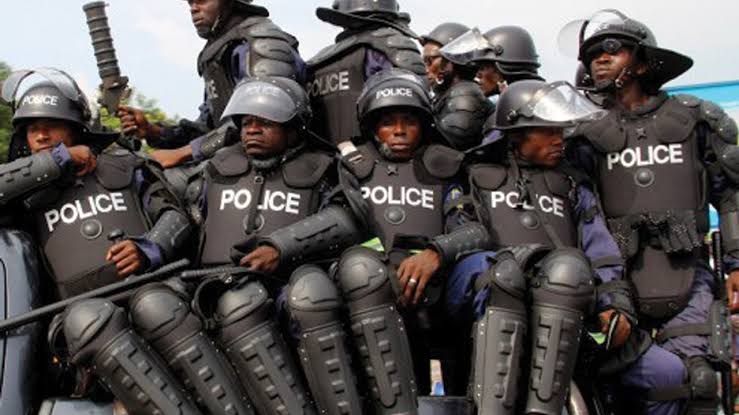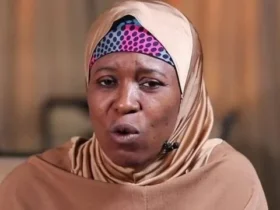
In the grand tapestry of Nigeria’s law enforcement, the Nigeria Police Force often claims to be the citizens’ friend, the guardian of peace and order. However, recent developments reveal a rather sinister dance with illegality, leaving citizens bewildered and questioning the true nature of this so-called friendship.
One such dubious maneuver is the impending operationalization of the electronic Certificate of Road Worthiness (e-CMR) and Operation Velvet. In this satirical exploration, we peel back the layers of the police’s supposedly well-intentioned initiatives, exposing the controversies beneath the surface.
The Irony of “Police is Your Friend” In the theater of irony, the Nigeria Police Force’s slogan “Police is Your Friend” takes center stage. It’s a phrase so worn, so clichéd, that one can’t help but chuckle at the paradoxical nature of recent events. The e-CMR and Operation Velvet, touted as heralds of a safer road environment, hide in the shadows of legality, leaving citizens questioning the authenticity of this friendship.
Operation Velvet: A Velvet Glove Over an Iron Fist Operation Velvet, with its enigmatic name, promises a smoother and safer road experience. However, beneath the velvety exterior lies the iron fist of uncertainty and potential abuse of power. The lack of clarity regarding the legal framework supporting this operation raises eyebrows. Is this a genuine effort to curb traffic offenses, or is it a guise for arbitrary actions that could infringe on citizens’ rights? The Nigeria Police Force, in its infinite wisdom, has failed to provide explicit information on the laws backing Operation Velvet.
It’s almost as if they expect citizens to blindly trust the velvety promises without questioning the potential consequences. The irony of the situation becomes apparent: the police, our supposed friends, are orchestrating an operation shrouded in mystery and uncertainty. e-CMR: The Electronic Mirage of Road Worthiness The e-CMR, or electronic Certificate of Road Worthiness, is another gem in the police’s treasure trove of initiatives. On the surface, it appears to streamline the process of certifying the roadworthiness of vehicles.
READ ALSO: Gbadebo Rhodes-Vivour Knocks Sanwo-Olu Over Lavish Spending of State Funds on Personal Lawsuits
However, as we dig deeper, the mirage becomes apparent. What laws support this digital transformation of roadworthiness certification? The police, with a sweep of their digital wand, expect citizens to comply with a system that lacks a clear legal foundation. The online platforms introduced to check the validity of roadworthiness certificates seem like a step toward transparency. Yet, the ongoing debates and concerns regarding the legality and enforcement of these certificates cast a shadow over the entire process.
Is this digital revolution truly a step towards progress, or are we witnessing the birth of a digital dystopia where citizens are at the mercy of unclear regulations? The Legal Quagmire: Road Worthiness Certificate in Limbo The legality of the roadworthiness certificate in Nigerian law is a puzzle wrapped in uncertainty. While the Police Force urges citizens to update their papers, the legal framework supporting this requirement remains elusive. A Nairaland source suggests that private vehicles may not require a roadworthiness certificate based on relevant laws, adding to the confusion.
The New Telegraph raises questions about the regularity of Vehicle Inspection Officers (VIOs), hinting that their actions may be illegal. In this legal limbo, citizens are left to navigate a maze of uncertainty, wondering whether their compliance with roadworthiness regulations is a matter of legal obligation or a whimsical request from our “friendly” police force.
The Comedy of Checking Road Worthiness Online The digital age beckons, and so does the Nigeria Police Force, inviting citizens to check the validity of their roadworthiness certificates online. It’s a comedy of errors as citizens are directed to various websites: the Directorate of Vehicle Inspection Service, http://veriy.autoreg.ng, http://askniid.org, and http://nigeriadriverslicence.org.
While the Police Force attempts to lead citizens down the online rabbit hole, the broader question of the legality and enforcement of these certificates remains unaddressed. It’s almost comical how the police, in their pursuit of a digital utopia, overlook the fundamental issue of legal clarity. The online platforms may provide a fleeting sense of transparency, but they do little to dispel the overarching ambiguity surrounding the entire certification process.

The Grand Finale: A Motion for Clarity In this theater of absurdity, a motion emerges as the grand finale, a plea for clarity and legal coherence. An unnamed legislative aide presents a motion to halt the Nigeria Police Force’s operationalization of the e-CMR and Operation Velvet. The motion calls for a comprehensive briefing on the legal framework supporting these initiatives, an investigation into the legality of roadworthiness certificates, collaboration with relevant stakeholders, and a public hearing. It’s a satirical twist, a call for the police to adhere to their own mantra of being friends with the citizens.
Shouldn’t friends be transparent and clear in their intentions? Shouldn’t friends provide a legal foundation for their initiatives? The motion, in its satirical brilliance, highlights the absurdity of a police force claiming friendship while dancing on the thin line between legality and uncertainty. Conclusion: The Curtain Falls on the Comedy of Legality As the curtain falls on this satirical exploration, the Nigeria Police Force’s penchant for legality, or lack thereof, takes center stage.
The e-CMR and Operation Velvet, veiled in controversy and ambiguity, serve as cautionary tales in the grand narrative of law enforcement. Perhaps it’s time for the police force to reconsider its role in this theatrical production. After all, friends should be clear, transparent, and, above all, lawful in their actions. The citizens, the unwitting audience in this drama, deserve more than a velvety promise; they deserve the assurance that their safety is upheld within the bounds of legality. Until then, the satirical spotlight remains on the Nigeria Police Force, awaiting a performance that aligns with the principles of transparency, fairness, and true friendship.
Chidi Ekeh writes from Abuja.
@Chidosqi on X








Leave a Reply